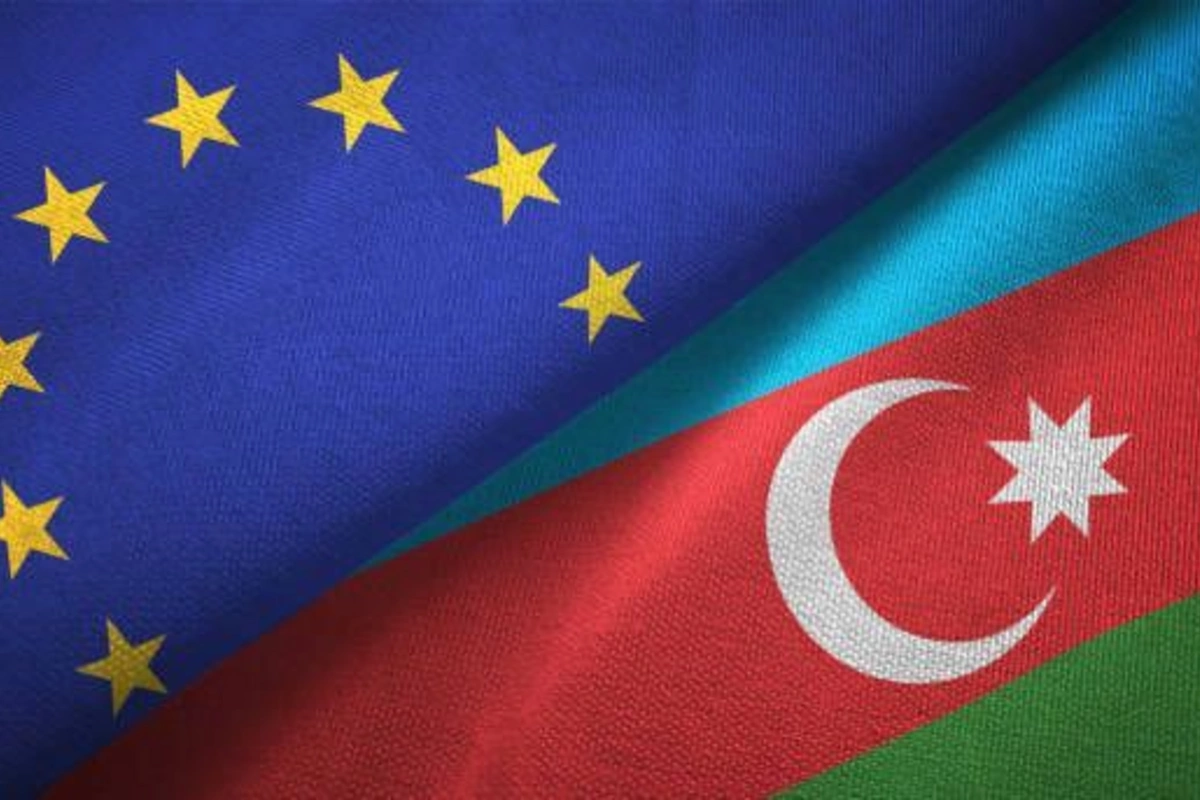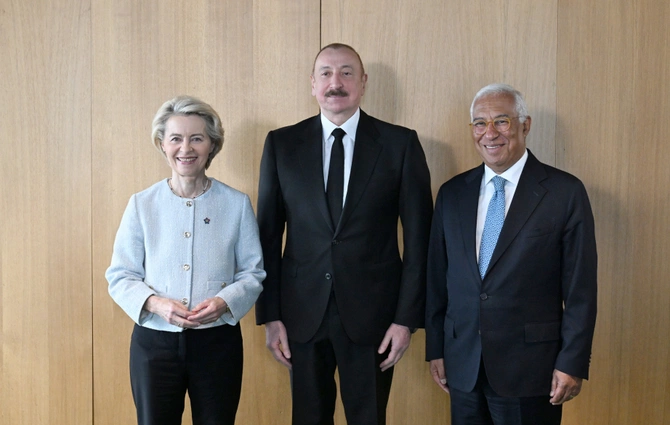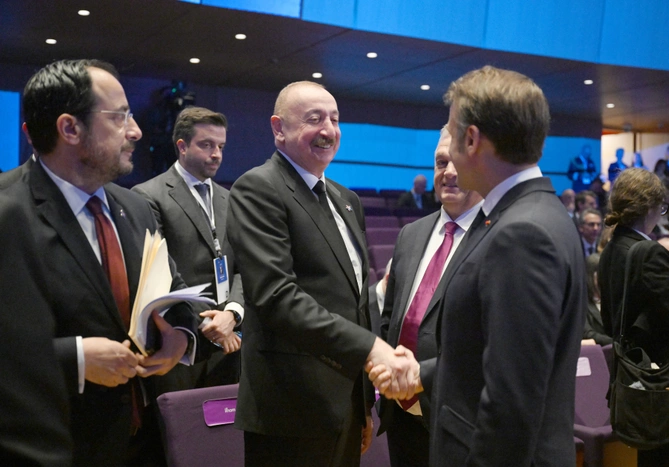
It seemed, not long ago, that many had prematurely written off relations between Baku and Brussels-with striking confidence and finality. Yet geopolitics has its own rules and logic. It does not tolerate rushed conclusions. More often than not, pauses-whatever their cause-are followed by new phases of rapprochement and expanded cooperation. This is exactly what we are witnessing today in the relationship between Azerbaijan and the European Union.
A key testament to this was the recent dialogue between President of Azerbaijan Ilham Aliyev, European Commission President Ursula von der Leyen, and President of the European Council António Costa at the Sixth Summit of the European Political Community. The atmosphere of the meeting, the priorities outlined in the statements, and the concrete outcomes of the negotiations made it clear that Baku and Brussels are determined not only to maintain their partnership but to elevate it to new strategic levels for the benefit of both sides.

Photo: Azertac
Almost three years ago, Baku and Brussels signed the Memorandum of Understanding on a Strategic Partnership in the Energy Sector, which President Aliyev described as a "roadmap for future cooperation." Ursula von der Leyen, in turn, thanked Azerbaijan for its determination and reliability, especially during Europe’s energy crisis. She emphasized that Azerbaijan had become a key alternative partner as Europe sought to reduce its dependence on Russian gas. This agreement went far beyond conventional energy supplies, opening new prospects for cooperation in renewable energy. Building on this direction, in late 2022, Azerbaijan, Georgia, Romania, and Hungary signed a Strategic Partnership Agreement aimed at delivering “green” energy to Europe via the Black Sea.
Of course, there were periods of cooling relations between Baku and Brussels. These pauses were driven by both objective challenges and the efforts of certain ill-wishers on both sides who sought to create friction. Some European politicians attempted to impose politically motivated conditions that had little to do with the real interests of either the EU or Azerbaijan. Nevertheless, common sense eventually prevailed, as recent meetings in Tirana clearly demonstrated.
During the discussions, the two sides explored not only the future of energy supplies and renewable energy development but also the broader potential of expanding cooperation in the transport sector. Particular attention was given to the development of the Trans-Caspian International Transport Route (the Middle Corridor), which positions Azerbaijan as a critical bridge between East and West. Discussions also included plans for laying an undersea electric cable across the Black Sea and expanding the Southern Gas Corridor, both of which would further strengthen Europe’s long-term energy security.
Significantly, EU and Azerbaijani leaders also addressed the ongoing peace process between Azerbaijan and Armenia. Brussels welcomed the agreement on the text of a peace treaty, stressing that its signing would create new conditions for peace, stability, and economic development across the South Caucasus. President Aliyev, for his part, reiterated Azerbaijan’s readiness to engage with Armenia in large-scale energy and transport projects, provided that Yerevan takes real steps toward peace. He stressed that "the ball is in Armenia’s court." However, recent statements by Armenian Prime Minister Nikol Pashinyan, suggesting that Armenia’s Constitution does not contain territorial claims against Azerbaijan, appear more like a political maneuver than a genuine step toward reconciliation. Time is running out for Armenia to make a definitive choice.
It is also worth noting President Aliyev’s numerous bilateral meetings in Tirana with leaders of the United Kingdom, the Czech Republic, Slovakia, Albania, Hungary, and Turkey. Turkish President Recep Tayyip Erdoğan, in particular, emphasized the need to reform Europe’s security architecture based on principles of fairness and equitable access to resources and benefits.

Photo: Press service of the President of the Republic of Azerbaijan
All of this underscores Azerbaijan’s growing significance not only as an energy partner but also as a key geopolitical player in Eurasia. Baku has skillfully pursued a multi-vector foreign policy, strengthening ties with Europe, China, the Middle East, Africa, and its Caspian neighbors. Azerbaijan exemplifies how a middle power can influence global processes-not by engaging in confrontation with major powers, but by offering pragmatic solutions and creating platforms for mutually beneficial cooperation.
It is in this context that President Aliyev’s statement from 2022-that "Azerbaijan and the European Union are jointly reshaping Europe’s energy map"-resonates with renewed relevance. Azerbaijan has proven itself to be a strategic partner, not only for Europe but for the entire Eurasian region. Its energy strategy extends far beyond gas supplies, encompassing the development of transport corridors, the transition to renewable energy, and the expansion of transcontinental infrastructure. Today, Azerbaijan confidently asserts itself as a nation that not only adapts to global challenges but actively shapes the international agenda by offering concrete, realistic solutions. This positions Baku as one of the few players whose voice is increasingly influential in both global politics and the world economy. Judging by the outcomes of the Sixth European Political Community Summit, Azerbaijan’s role in the coming years is set to grow even stronger.
Share on social media